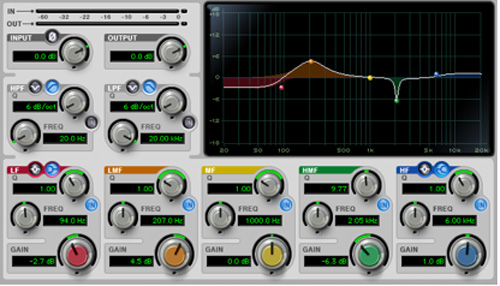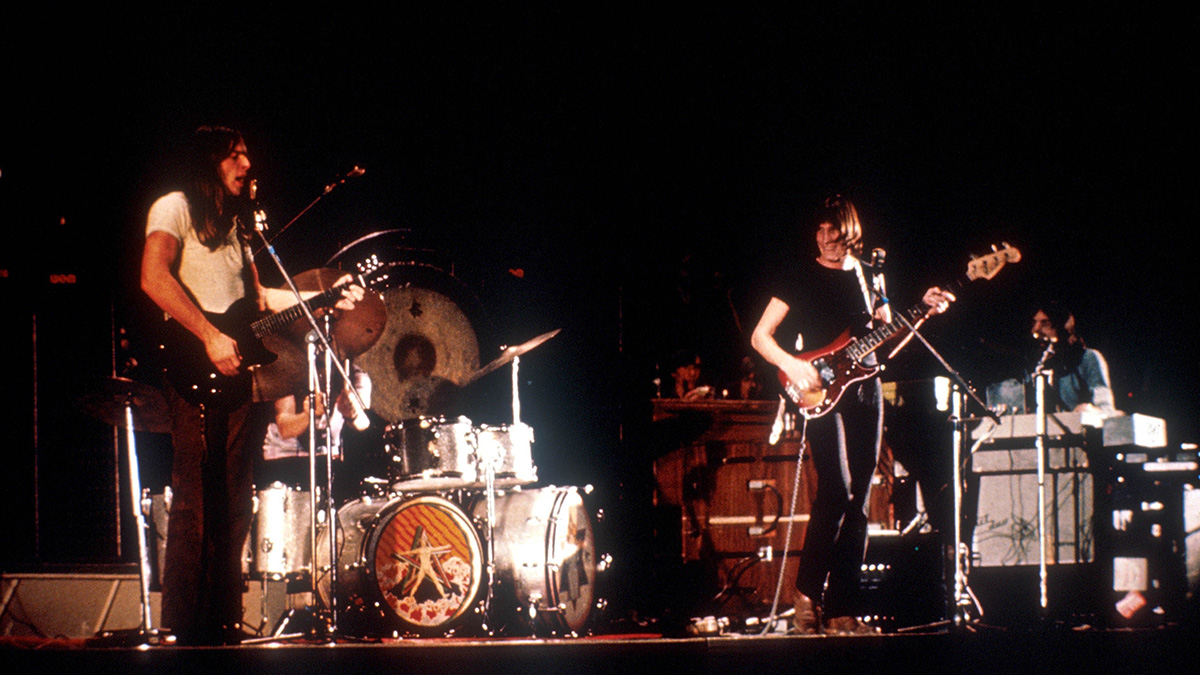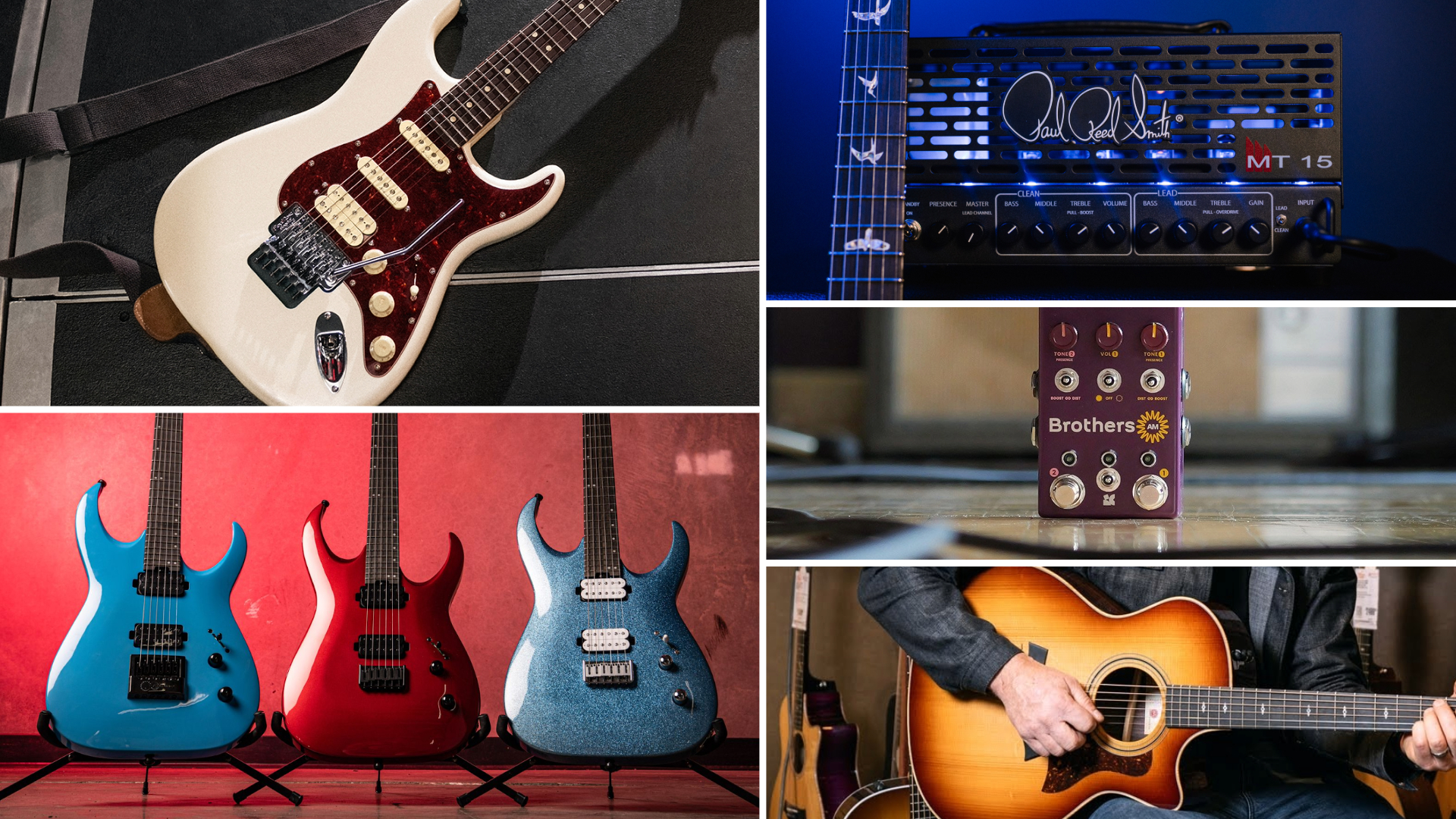Six-String DIY Recordist: Understanding the Importance of the EQ Factor

In this week’s blog, I want to briefly discuss the role of EQ and its importance in your DIY home recording projects.
Simply put, EQ is a set of filters that allows the altering of an incoming audio signal or of a recorded audio signal. It is comprised of three essential elements;
1. The choice of selecting a determined frequency (in Hz) in the frequency spectrum, by ...
2. The adjustment of the Q factor, which allows the user to ...
3. Determine the sharpness of the bandwidth, which in turn controls the amount of boost or cut of the selected frequencies.
The EQ also houses a filtering element that allows you to selectively alter what passes through it, so think of a filter as a shaping sonic tool. The filtering device allows you to alter some frequencies while leaving others untouched. Normally there are two types of filters, a high-pass filter and a low-pass filter.
A high-pass filter cuts out everything underneath the selected frequency while a low-pass filter works in a similar fashion, though doing the opposite; i.e., it cuts everything above a given frequency. Aside from its tonal shaping capabilities, it is also important when it comes to mixing a recorded track, where the EQ-ing of any given instrument’s frequency range helps to construct a solid sonic wall where each instrument sits in its own frequency range whilst complimenting the other instruments that are scattered in the overall audio spectrum, and thus making for a pleasing sonic mix. In other words, each instruments’ voice is allowed space to shine and add its own textural element to the sonic palette of the recorded track.
Get The Pick Newsletter
All the latest guitar news, interviews, lessons, reviews, deals and more, direct to your inbox!
For example, if the kick drum and the bass guitar are not gelling well together, and both of its frequencies are sharing its frequency range, in turn muddying the mix, it's important then to define each of its own frequency range by EQ-ing so that they do sit better together, and where each can be defined and balanced accordingly.
There are no hard and fast set rules when it comes to EQ-ing, as each track is subject to one’s own music maker’s vision and the needs of the particular recorded material at hand. All in all, EQ is something that each DIY musician needs to come to understand and know how to use well, as it is an integral tool in your whole recording approach and one that can open up limitless creative possibilities.
Joe Matera is an Australia-based rock guitarist who has played in countless original and cover bands over the past 20 years. As a solo instrumental artist, his current release is an original guitar instrumental track called "Face Off'," now available on iTunes. He also makes a guest appearance playing a blazing guitar solo on UK thrash metal veterans Atomkraft's cover of the Thin Lizzy classic "Cold Sweat," which is out this summer. He also is a Guitar World magazine contributor. For more info, visit joematera.com.
Joe Matera is an Australian guitarist and music journalist who has spent the past two decades interviewing a who's who of the rock and metal world and written for Guitar World, Total Guitar, Rolling Stone, Goldmine, Sound On Sound, Classic Rock, Metal Hammer and many others. He is also a recording and performing musician and solo artist who has toured Europe on a regular basis and released several well-received albums including instrumental guitar rock outings through various European labels. Roxy Music's Phil Manzanera has called him, "... a great guitarist who knows what an electric guitar should sound like and plays a fluid pleasing style of rock." He's the author of Backstage Pass: The Grit and the Glamour.
"Upgrading from your entry-level acoustic opens the door to an entirely new world of tonewoods, body shapes, and brands": 6 signs it's time to upgrade from your first acoustic guitar
"I'm past my prime": 5 common excuses for not learning the guitar – and 5 body and mind-boosting reasons you should










